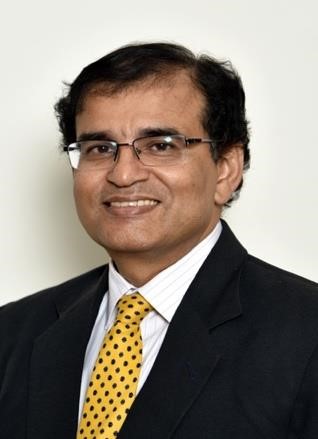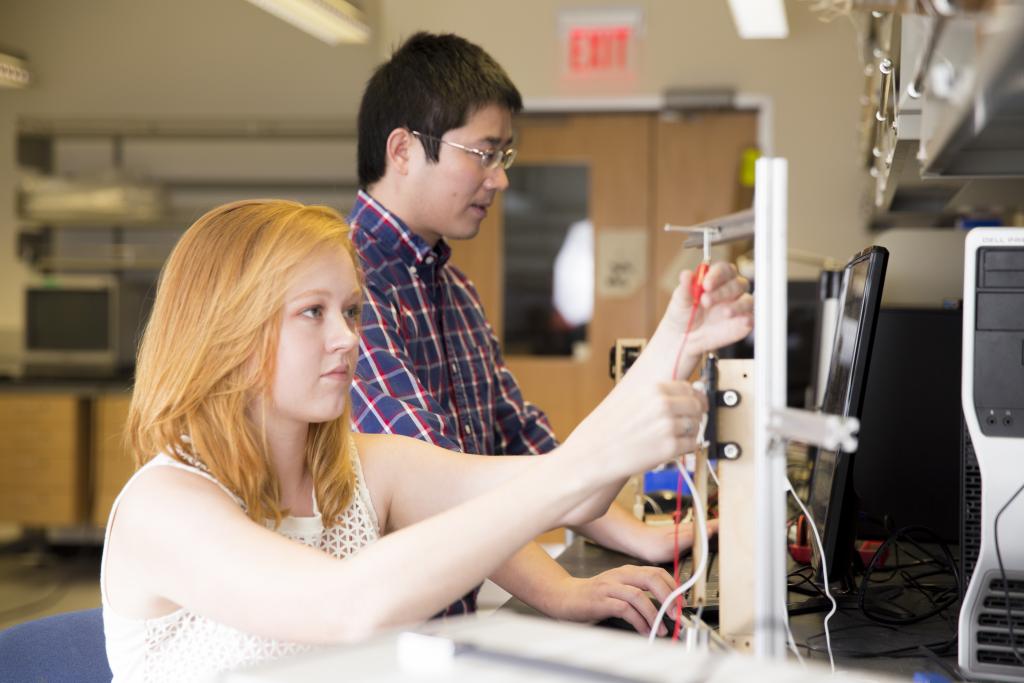News

December 19, 2024
UC San Diego Electrical Engineering Professor Honored by Schmidt Sciences for AI Research
University of California San Diego electrical and computer engineering professor Yuanyuan Shi has been named a 2024 AI2050 Early Career Fellow by Schmidt Sciences. This honor recognizes Shi’s pioneering work in developing AI and control models for sustainable energy systems–particularly, AI-driven building control systems designed to optimize indoor air quality while reducing energy consumption. Full Story
December 16, 2024
Researchers tap robots for the dirty, dull and dangerous
Jacobs School of Engineering researchers are nearly halfway through a three-year project to explore ways to integrate robotics into the construction industry and improve 3D reconstruction and mapping. Supported by KIAT (the Korea Institute for Advanced Technology), KETI (the Korea Electronics Technology Institute) and smart construction technology company ITOne, the grant funding adds up to $786,500 and runs through August 31, 2027. Full Story

December 10, 2024
UC San Diego Electrical Engineering Professor Inducted Into National Academy of Inventors
UC San Diego electrical engineering professor Farinaz Koushanfar has been elected to the 2024 Class of Fellows of the National Academy of Inventors (NAI). Koushanfar is Co-Director of the Center for Machine-Intelligence, Computing & Security at the UC San Diego Jacobs School of Engineering. Full Story

December 3, 2024
UC San Diego and Scripps Research Join National Team to Make Vision-restoring Whole Eye Transplants a Reality
A San Diego team is part of a major undertaking that will bring together more than 40 scientists, doctors, and industry experts hand-picked from around the country to make vision-restoring whole eye transplants a reality. At UC San Diego, a research team led by Professor Shadi Dayeh, in the Department of Electrical and Computer Engineering, will develop a wireless, multi-modal electrode system to wire the optic nerve to the brain with high-end precision after an eye transplant to restore vision. Full Story
Summer Math Initiative: Program Schedule
Thank You for Joining the Summer Math Initiative!
This program is designed to help you prepare for ECE 35 by reviewing key mathematical concepts. Over the course of the summer, we will focus on the following three topics:
-
Solving Systems of Linear Equations
-
Derivatives and Integrals
-
Complex Numbers
Schedule
All sessions are held Wednesdays from 6:00 PM – 7:00 PM (via Zoom).
-
Opening Session – July 9
Instructor: Professor Nguyen
Overview of the program, topics to be covered, and tutor introductions.
Access the session here: Zoom
Topic 1: Solving Systems of Linear Equations
Tutor: Huong Hoang
-
July 23 – Introduction, problem-solving strategies, Q&A
Access the session here: Zoom
-
July 30 – Review homework problems, Q&A
Access the session here: Zoom
Topic 2: Complex Numbers
Tutor: Mehmet Bagci
-
August 6 – Introduction, practice problems, Q&A
Access the session here: Zoom
-
August 13 – Review homework problems, Q&A
Access the session here: Zoom
Topic 3: Derivatives and Integrals
Tutor: Runfa Li
-
August 20 – Introduction, practice problems, Q&A
Access the session here: Zoom
-
August 27 – Review homework problems, Q&A
Access the session here: Zoom
We look forward to an engaging and productive summer of learning!
Course 2024-2025

2024-25 NEW COURSES, look for them below.
look for them below.
Resources: ECE Official Course Descriptions (UCSD Catalog)
For 2023-2024 Academic Year: Courses, 2023-24
Particle accelerator on a nanophotonic chip
Particle accelerators are indispensable tools in science, industry and health care. Almost all of them are based on microwave driving. Based on a similar principle, acceleration of electrons with the help of laser light has already been proposed decades ago: Nanophotonic structures are needed that generate an optical near-field mode efficiently propelling the electrons. We could recently demonstrate the accelerator on a chip.
Making neural networks more trustworthy and sustainable
The use of deep neural networks (DNNs) is currently transforming many areas of science and engineering. Although DNN-based techniques outperform traditional algorithms in most signal processing tasks, they can exhibit weaknesses such as reduced robustness and a tendency to produce hallucinations. These issues are linked to the DNN's Lipschitz constant, which typically worsens exponentially with the addition of layers. In this work, we present a framework for the design of stable networks with maximal expressivity.
An Information Theory for Out-of-Order Information: Applications in DNA Data Storage and Genomics
The recent development of DNA-based data storage prototypes has raised several questions about how to optimally encode information in these systems. A distinguishing feature of this new storage paradigm is that the stored information is read via “shotgun” sequencing technologies. This means that the channel output comprises many short fragments of the input observed out of order. Motivated by this, we study the capacity of a class of “shuffling channels” that capture this inherent need to reorder the observed channel output.
Fundamentals of RF System Analysis for IC Designers
This seminar provides key insights into wireless system analysis from a circuit designer’s perspective, focusing on modulation techniques, line-up analysis, and link performance optimization. Participants will explore impairments in analog and mixed-signal components-thermal noise, phase noise, spurious signals, and distortion and their impact on system performance. The session covers critical metrics such as Signal-to-Noise Ratio (SNR), Error Vector Magnitude (EVM), Receiver Sensitivity, Blocker performance, and Transmitter out-of-band noise.
ECE Distinguished Alumni Awards

2025 Applied Mathematics Recipient- Subhasis Chaudhuri PhD' 1990
Bio: https://www.linkedin.com/in/subhasis-chaudhuri-36531b5/?originalSubdomain=in
Pagination
- Page 1
- Next page










.png)
.png)
.png)
